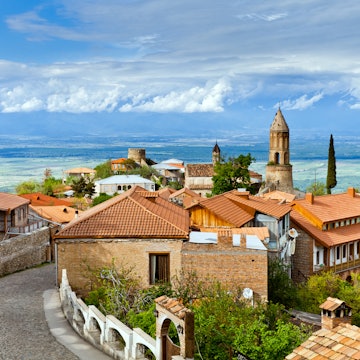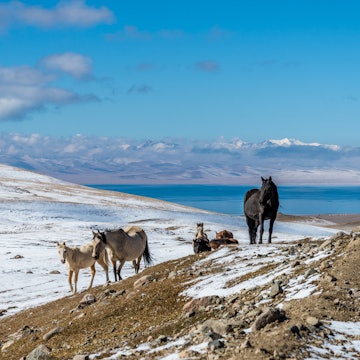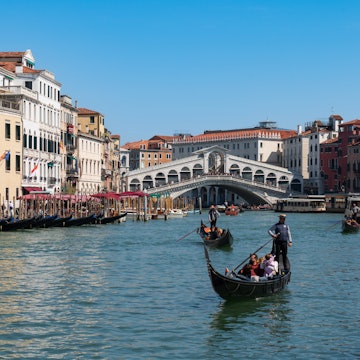
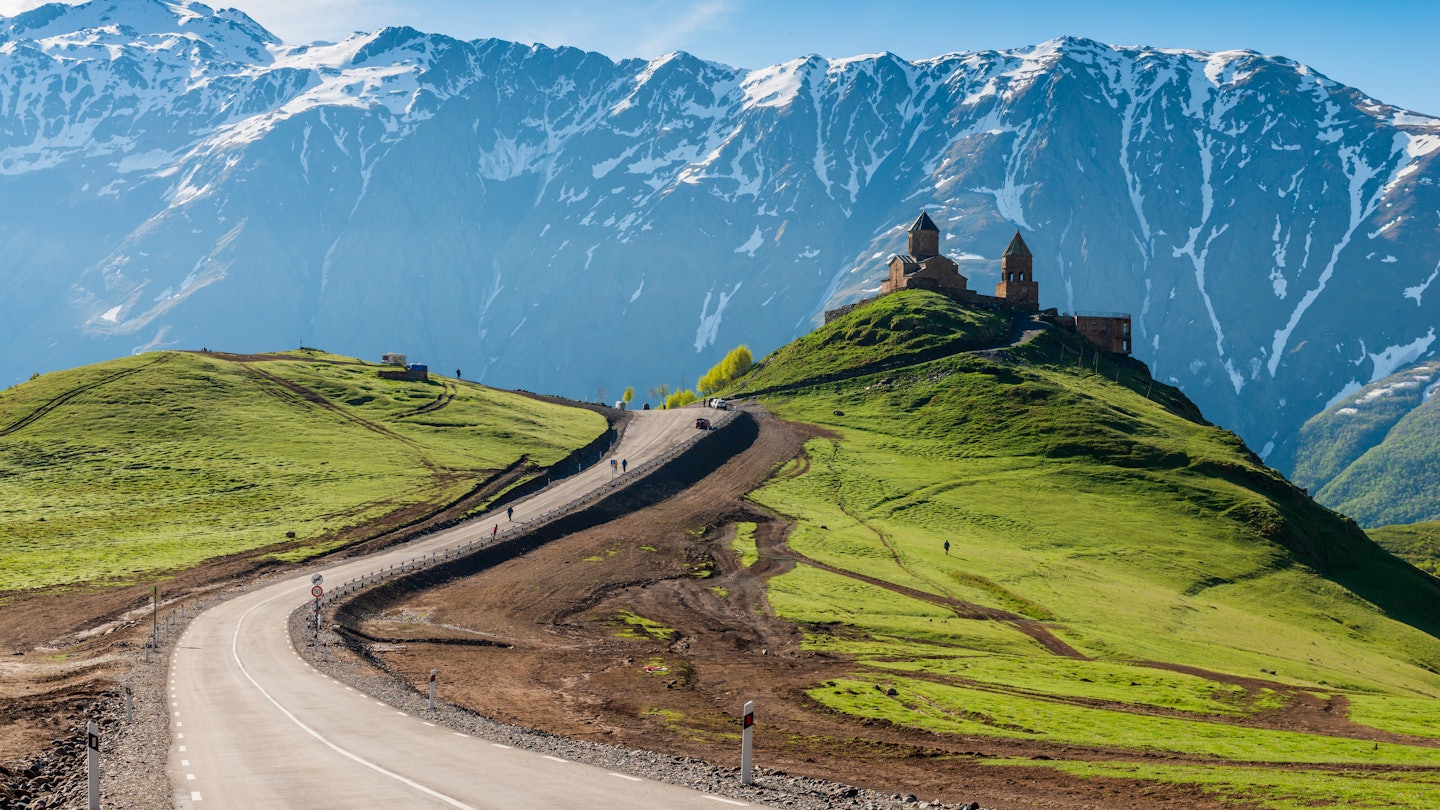
Church of the Holy Trinity in the mountains of Georgia. Vladimir Kovalchuk / Shutterstock
In recent years, mountainous Georgia has been drawing the praise of savvy travelers who have experienced its unique combination of ancient and modern attractions, extraordinary natural beauty, and rich and proud cultural traditions.
Anyone arriving in this small country is struck by its epic scale, with the Caucasus, Europe’s highest mountain range, never far away, and an astonishing variety of landscapes that few countries five times its size could hope to rival.
From its subtropical Black Sea coastline and pristine inland river gorges to its ancient, cave-hewn monasteries and undulating vineyards backed by the snowcapped Great Caucasus, Georgia is a place you’ll never forget. And if you’re heading there for the first time, we have a few tips.
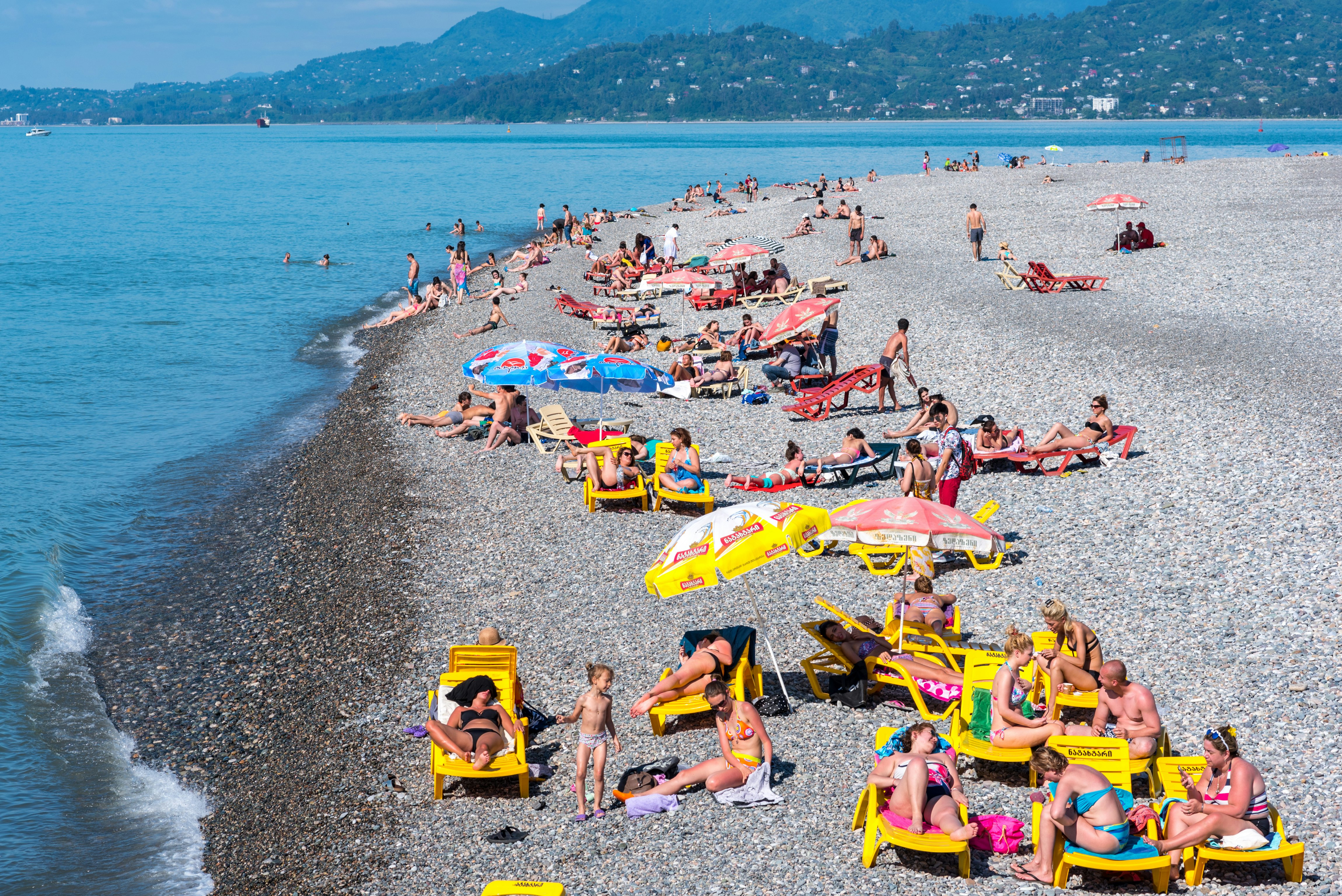
When should I go to Georgia?
It depends on the type of trip you’re planning. If you want to visit the mountains and do any serious hiking, then June, July and August are definitely your best bets. At lower altitudes, however, the summer months can be uncomfortably hot, and Georgia’s three main cities – Tbilisi, Kutaisi and Batumi – can swelter. If you’re after more urban pursuits and are keen to avoid the crowds and high-season prices, the shoulder months of May and September are both outstanding times to travel.
The long, dark winter (November to March) is generally best avoided, as most traveler infrastructure closes down and the High Caucasus are largely inaccessible. Yet if you do find yourself in Georgia in winter, you’ll find it remarkably tourist-free, with the hotels that remain open offering their lowest rates of the year.
How much time should I spend in Georgia?
Since many visitors have to travel some distance to reach Georgia, staying for fewer than four nights seems like a waste. Ideally, you’d want to spend at least a week in the country, which will allow you to get to know Tbilisi, travel for a few days around the country’s interior and spend at least a couple of nights in the mountains.
How do I get to Georgia?
Due to its location, nearly all visitors to Georgia arrive by plane – and it’s never been so easy to reach the country. Tbilisi’s modern airport boasts a dozen flights a day from major cities in Europe, as well as several daily connections to the Middle East and Asia. Near the centrally located city of Kutais, David the Builder airport has created a niche as the country’s low-cost airline hub and has connections to more (mainly Eastern) European airports.
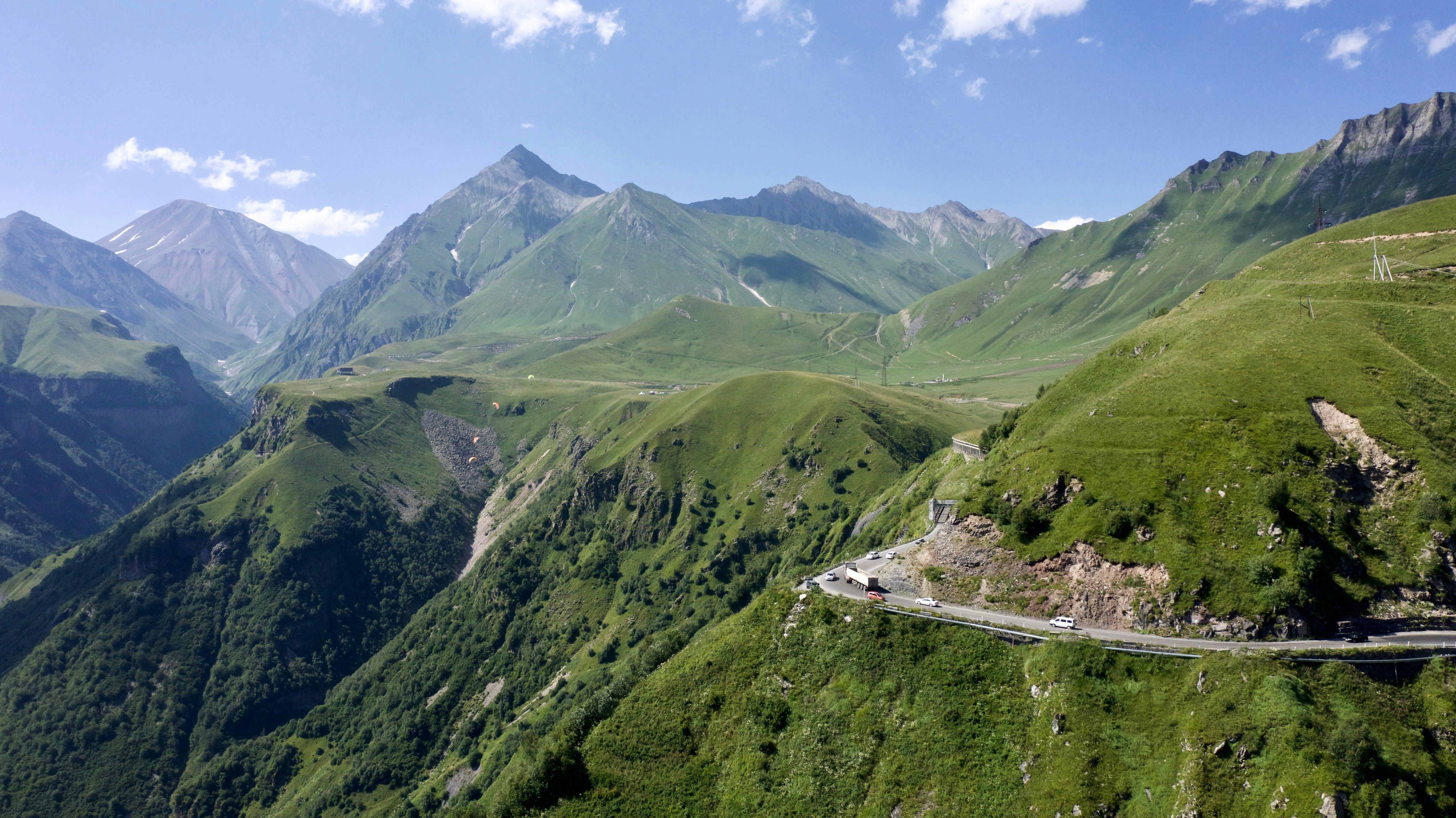
Is it easy to get around Georgia?
Once you've arrived, you’ll have to decide between making your way around the country by privately run minibuses known as marshrutky, which serve specific routes; or driving yourself in your own a rental car, an option that’s significantly pricier but which offers unparalleled freedom. The only train most travelers take is the modern and relatively fast service between Tbilisi and the second city, Batumi, on the Black Sea coast. Extremely cheap internal flights zip travelers from the capital up to the mountainous regions of Svaneti and Racha, saving hours of driving.
In Tbilisi, the two-line metro system is a good way to get around, while taxi apps Yandex, Bolt or Maxim are affordable and your best option in areas of town not served by the metro.

Top things to do in Georgia
In Tbilisi, you’ll find a wealth of churches; a lovely, semi-renovated Old Town; and unbeatable city views from the Sololaki ridge, accessed by cable car. Many in the techno world come to Georgia solely to visit Bassiani and a number of other venues that have put the city on the world’s clubbing map.
If you only have time for a day trip from the capital, then drive the Georgian Military Hwy to the town of Stepantsminda in the High Caucasus. (It might be one of the most memorable car journeys of your life.) Once there, take in the extraordinary sight of the town’s iconic hilltop church silhouetted against the snow-capped peak of Mt Kazbek.
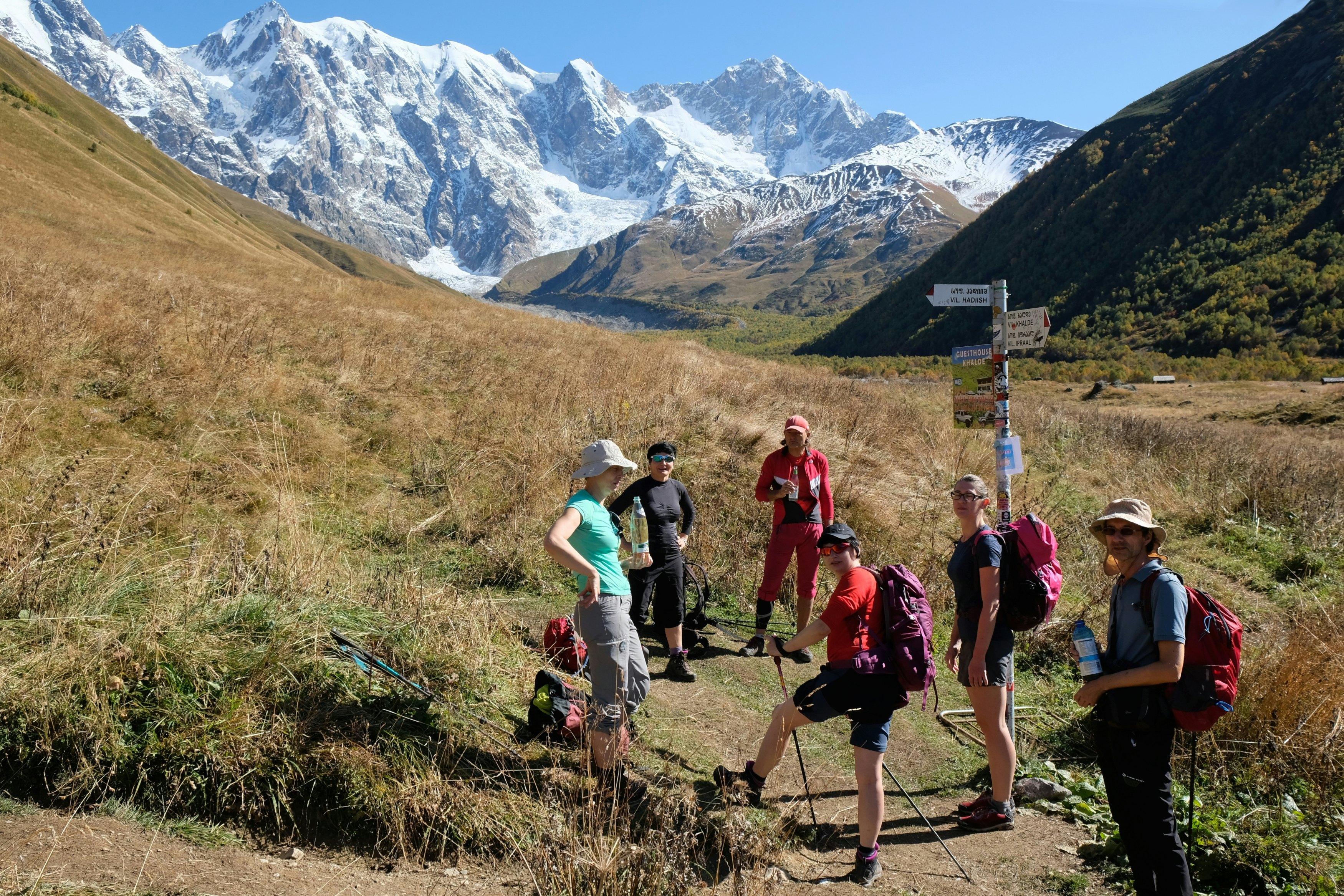
My favorite thing to do in Georgia
Few visitors would deny that the absolute highlight of the country is any time spent in its extraordinary mountains. Despite their height (Europe’s highest peak, Mt Elbrus, is just over the country’s northern border with Russia), these mighty peaks remain surprisingly accessible.
Now that there are regular flights to Mestia, in the mountainous and once truly remote region of Svaneti, it’s possible to make a quick, easy and affordable trip to the peaks of the Great Caucasus. Here, those disinclined to go hiking can take the combination ski-lift and cable car to Hatsvali for easy access to an unforgettable panorama. Walkers will find themselves spoiled for choice by the limitless array of possible hiking routes – though the four-day hike to the village of Ushguli is one of my absolute favorites.
How much money do I need for Georgia?
Georgia remains inexpensive by European standards, though it’s still pricier than most countries in Asia. As the tourism industry develops and standards continually rise, prices are unsurprisingly on the rise here.
Georgia remains friendly to backpackers, with atmospheric family homestays still widely available and dozens of contemporary hostels geared to the needs of travelers in bigger cities. Still, the average hotel price has gone from around €40 (US$46) to around €60 (US$67) in less than a decade. Short-term apartments are now a huge industry, with both prices and quality varying hugely and competition fierce. However, the cost of food and drink remains very reasonable, and you can easily have a good dinner for €10 (US$11.50) per person in most parts of the country.
Transport is incredibly good value – unless you want to rent your own vehicle, which is pricier than in most European countries due to a lack of large agencies and relatively little competition. The flight up to the mountainous region of Svaneti often costs less than the grueling hours-long marshrutka (minibus) ride, but you’ll normally need to book several weeks in advance during the summer months to ensure a seat.
Family homestay: €15–25 (US$17–29) per person per night
Contemporary hostels: €10–20 (US$17–29)
Average hotel: €60 (US$69)
Dinner: €10 (US$11.50) per person
Cup of coffee: €1–3 (US$1.15–3.44)
Bottle of local wine: €2–10 (US$2.30–11.50)
Train from Tbilisi to Batumi: €36 (US$41)
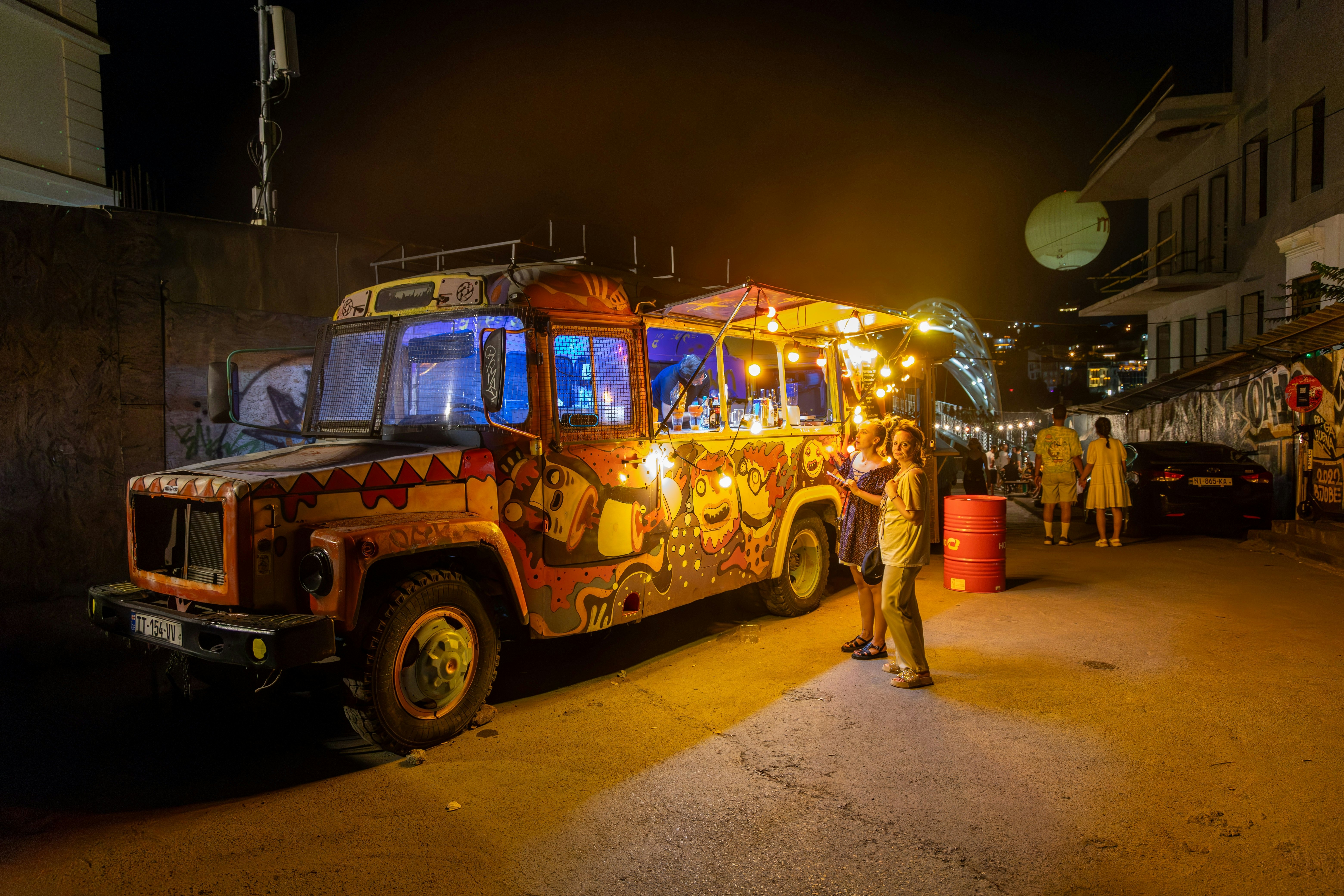
Is Georgia tourist-friendly?
The hospitality of the Georgian people is the stuff of legend, and you’ll be warmly welcomed everywhere you go. Tourism has provided a huge boost to the country’s post-Soviet economy, and almost everyone you meet will have some connection to the industry.
If you sleep in private homes during your stay, particularly in the country’s remoter mountain regions, be prepared for quite a welcome. It’s not uncommon to be served huge meals accompanied by copious homemade wine, before the evening is rounded off with several rounds of chacha, Georgia’s national firewater, together with emotional toasts from your hosts. If you’re lucky, you’ll also get to experience either traditional dancing or an impromptu performance of Georgian polyphonic singing.
Do I need a visa for Georgia?
Georgia offers visa-free travel to over 100 nationalities, including citizens of the EU, US, UK, Australia, Canada, Israel, New Zealand, South Africa and Switzerland. For those who require them, visas cost US$20, take five days to process and you can apply on Georgia’s e-Visa Portal.
Is Georgia safe?
While (as everywhere) you should keep your wits up as you bop around, Georgia is in general a remarkably safe country. The biggest risk you run is being a victim of a car accident: drive defensively and be very careful when crossing busy roads. There have been protests in Tbilisi since October 2024, following the country's parliamentary election. Check your country's travel advice before traveling.

How much English is spoken in Georgia?
While the only foreign language most older people are likely to speak is Russian, most people under 40 in urban areas are likely to know at least some English. Teenagers and anyone working in the travel industry tend to speak English very well. Nevertheless, making the (considerable) effort to learn a few words of Georgian will get you major cred from locals.
Are there any important dos and don’ts in Georgia?
The vast majority of Georgians identify as Georgian Orthodox Christians and appreciate visitors making an effort to dress appropriately when visiting the country's scores of ancient churches and cathedrals. In practice, women should cover their heads, while men should remove anything on their head. Luckily, most churches have a selection of smocks, cloaks and head scarves to borrow just outside the entrance, so you can help yourself.











